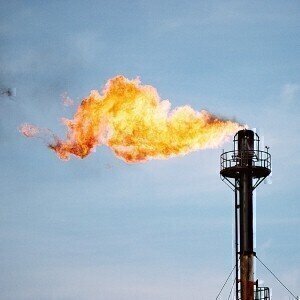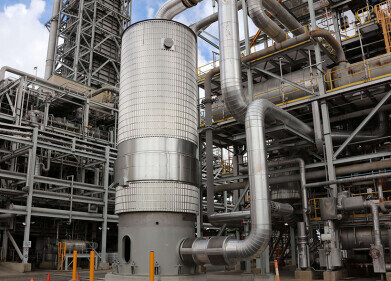Air Clean Up
Climate-Impact Researcher Warns Against a Dangerous Resurgence in the Use of Coal Following the Disaster in the Gulf of Mexico
Aug 03 2010
IFAT ENTSORGA has hosted an expert panel discussion in Berlin titled "Environmental Technology as an Export Opportunity – Does it Meet the Needs of Future Markets?". Prof. Dr. Ottmar Edenhofer, Chairman in the Intergovernmental Panel on Climate Change (IPCC) and Chief Economist at the Potsdam Institute for Climate Impact Research opened the event with a presentation titled "Environmental Protection as a Global Challenge: Opportunities, Focal Points, Key Technologies".
The enormous oil catastrophe in the Gulf of Mexico will have drastic personnel, ecological and economic consequences. But if the disaster forces the price of crude oil to continue to increase and global consumption to decrease as a consequence, would that at least benefit the global environment?
On the contrary, as Prof. Dr. Ottmar Edenhofer clarified: "Increasing oil prices are a disaster for environmental protection," explained the scientist at the expert panel discussion in Berlin. Higher oil prices are already making the use of coal to generate electricity considerably more competitive, particularly in China, India and the United States. "We are in the midst of resurgence in the use of coal," stated Edenhofer. And rapidly increasing CO2 emissions are the price we pay. If the catastrophe in the United States continues to drive the price of oil even higher, it could contribute to the fact that plans to liquefy China’s enormous coal reserves could become a reality. That would result in yet another increase in global emissions of carbon dioxide into the atmosphere – which could have far more dramatic consequences for the global environment.
How can we meet the two-degree goal?
Scientists agree: during the next few decades, the average global temperature must not under any circumstances be allowed to increase by more than two degrees. Otherwise, we could face consequences that would be impossible to control such as crop failures in parts of Africa or rising sea levels, which would endanger the livelihoods of millions of people in coastal regions. However, according to Edenhofer, the two-degree goal can only be reached if greenhouse-gas emissions remain constant over the next few years and begin to decrease at the beginning of the next decade at the latest – an objective that appears further away now more than ever before. The prerequisite for this urgently needed change in course is to establish a global CO2 market that limits emissions that are dangerous to the environment to a tolerable minimum. Technological innovations are also needed to reach this objective.
Environmental technology as an export opportunity – Where does Germany stand?
The environmental-technology sector in Germany is prepared for scenarios of this type. In the unanimous opinion of the experts at the Berlin event, German companies are extremely innovative, are good at networking, and their products and services are very well received in other countries. The experts who took part in the discussion included Dr. Thorsten Grenz, Vice President of the Federation of the German Waste, Water and Raw Materials Management Industry (BDE) and CEO of Veolia Umweltservice GmbH, Dr. Sergej Nikitin, representative of the Chamber of Commerce and Industry (CCI) of the Russian Federation in Germany, Gunda Röstel, Managing Director of Stadtentwässerung Dresden GmbH and Member of the Board of Trustees of Technische Universität Dresden, and Dr. Helge Wendenburg, Head of the Water/Waste Water/Soil Department at the Federal Ministry for the Environment, Nature Conservation and Nuclear Safety.
The general consensus among the participants is that people in other countries still consider German products innovative and long lasting. Companies think in terms of complete solutions, and not just plants and machinery. Instead, they take planning, concept development, technology, financing and operations into account.
In addition, German environmental companies that want to do business abroad can rely on various forms of support from the responsible ministries. Every two years, IFAT ENTSORGA in Munich provides perfect surroundings for the exchange of information and expertise at the domestic and international level. The World’s Leading Trade Fair for Water, Sewage, Waste and Raw Materials Management, which is being held from 13 - 17 September of this year, established itself as the world’s most important platform for the environmental-technology sector quite some time ago. The 2010 event also features an extensive supporting programme that includes conferences as well as information and discussion events with prominent participants.
Events
IWA World Water Congress & Exhibition
Aug 11 2024 Toronto, Canada
Aug 25 2024 Stockholm, Sweden and online
Sep 03 2024 Mexico City, Mexico
Sep 03 2024 Mexico City, Mexico
Sep 03 2024 San Diego, CA, USA














